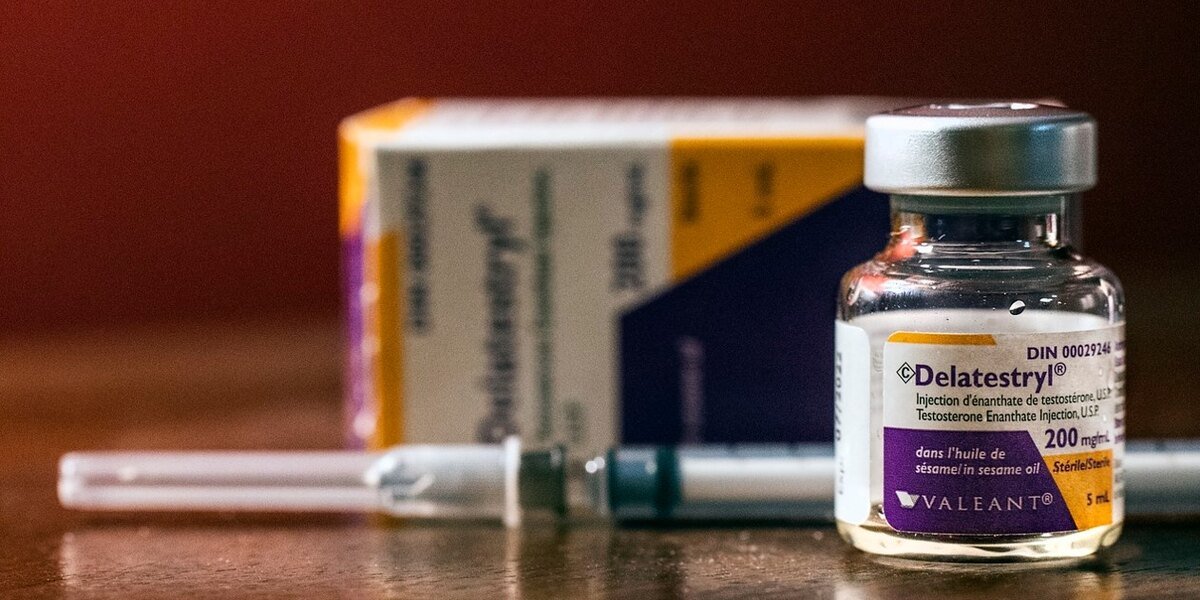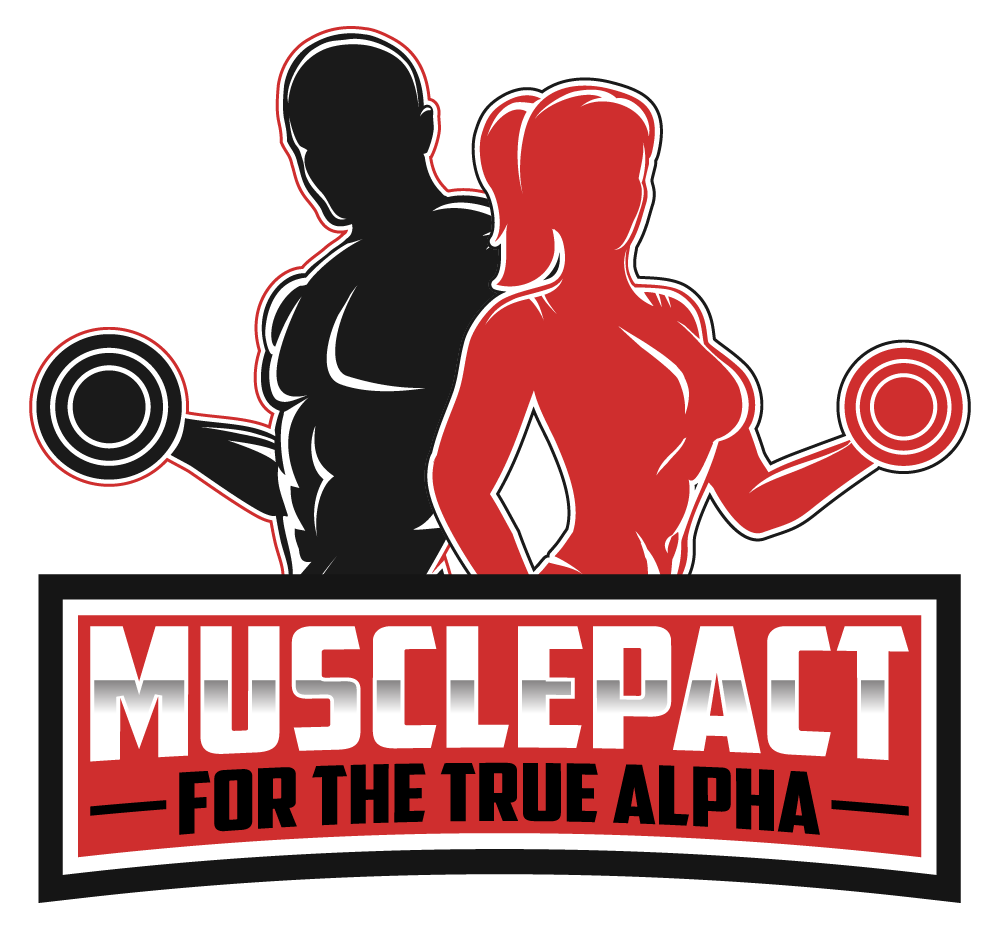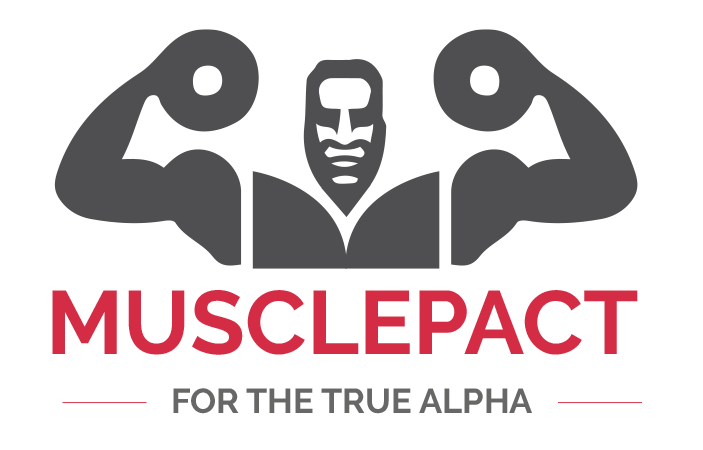Testosterone is the most important hormone in the male body. It leads to sexual development and helps manage sexual desire. While it is important for good health, high levels of testosterone can lead to a range of symptoms, signs, and/or mild conditions. Knowing these signs is key to maintaining a positive hormonal balance and overall health. So, what are the signs of high testosterone in a man?
Signs of High Testosterone In A Man
High testosterone levels cause both physical and behavioral changes. The following are the most common signs of high testosterone in a man:
Physical Indicators
- Increased Muscle Mass: Testosterone is an essential hormone for muscle mass growth and strength. It is not uncommon for men with high testosterone levels to gain muscle quickly without the need for an intense training routine.
- Facial and Body Hair Growth: High levels of testosterone can cause excess hair to grow on the face and body, sometimes more than what’s normal for one’s age or race.
- Acne and Oily Skin: High testosterone can cause the sebaceous glands in your skin to produce more oil, leading to the growth of a pimple, particularly on the back and shoulders.
- Voice Deepening: One of the changes during puberty that male hormones are responsible for is a deeper voice. When that happens in adulthood, it impacts vocal cords even more, which results show up, particularly with a much deeper voice.

Behavioral Indicators
- Mood Changes: Testosterone at high levels affects the mood and behavior. It can make you more aggressive, irritable, or simply over-confident.
- Libido booster: Testosterone is directly related to libido or sex drive. High levels may help men to have a big libido boost.
- Competitive behavior: Higher testosterone has been linked with greater competitiveness and more competitive or even riskier behavior.
- Insomnia: In few men, raised testosterone level can cause sleep disturbance or sleep apnea.
Remember, these things can manifest themselves very differently in each person, and one or several of them do not inherently mean your testosterone levels are through the roof. Routine check-ups and testing of hormone levels can give you a more definitive answer.
Causes of High Testosterone
There are multiple reasons a man might have high testosterone levels. In order to properly manage and treat it, it is necessary to understand the root cause:
Genetic Predispositions
Testosterone levels are higher among men due to their genetic composition. Variations in the genes that make and regulate testosterone could explain this.
Lifestyle Choices
- Diet and Exercise: A diet rich in nutrients such as zinc and vitamin D can help with testosterone production. Likewise, regular resistance training and high-intensity workouts can help boost its levels.
- Substance Abuse: Use of anabolic steroids and other muscle-enhancing substances can artificially elevate testosterone.
Medical Conditions
- Adrenal Gland Disorders: Certain conditions, like congenital adrenal hyperplasia, can lead to high testosterone levels.
- Testicular Tumors: Testicles may produce excessive testosterone if benign or malignant tumors of the testicle are present.
- Hormonal Imbalances: Various hormonal disorders, in particular conditions that influence the pituitary gland or hypothalamus, can disrupt the normal regulation of testosterone.
Medications
Some medications and even certain supplements can accidentally cause higher testosterone levels. If you begin to take any new medication or supplement, please ask a healthcare provider for guidance.

Comparison with Low Testosterone
Male testosterone levels are crucial to a man’s health and well-being, but men can experience different sets of symptoms if their hormones are either too high or too low.
Symptoms of Low Testosterone
- Lesser Muscle: Instead of the muscle growth associated with high testosterone, low levels lead to loss in both strength and mass.
- Fatigue: Low testosterone in men can result in physical tiredness and lower energy levels than usual, possibly leading to chronic fatigue.
- Higher Body Fat: Low testosterone can lead to higher body fat and weight gain, especially in the belly area.
- Decreased sex drive: This one is a classic, red flag symptom of low testosterone.
- Disorders of mood: Low levels of testosterone are frequently accompanied by depression, anxiety, and mood swings.
- Thinning Hair: Another symptom of low testosterone is hair loss on the scalp and thinning of body or facial hair.
Similarities Between Low and High Testosterone
Although the symptoms of high and low testosterone can differ, there are some symptoms that they have in common:
- Mood changes: Both conditions can produce changes in mood, albeit in different forms (e.g., aggression versus depression).
- Sleep Issues: Insomnia and sleep apnea can happen with low testosterone levels as well as high.
- Concentration Difficulties: Focus and memory can be impaired when testosterone levels are very high or low.
Recognizing these differences and similarities is important as it can help determine whether someone may be suffering from hormonal imbalance to seek proper medical evaluation and treatment.
Impact of High Testosterone
Testosterone is an important part of men’s health, but high testosterone levels can have both good and bad effects.
Potential Benefits
- Having higher levels of testosterone is generally considered beneficial for one’s sex life.
- Growing evidence supports potential benefits of TRT (Testosterone replacement therapy) in improving metabolic and cardiovascular parameters among hypogonadal men, suggesting that a hormonal environment characterized by normal/adequate testosterone levels may be beneficial to protect against adverse cardiovascular events [1].
- Previous studies provide evidence that high serum testosterone levels are associated with a reduced risk of congestive heart failure (CHF) and other cardiovascular diseases. For example, there is a notable linear relationship wherein higher testosterone levels were associated with lower CHF occurrence and this was particularly dramatic in men > 50 years [1].
- Newer data suggest that higher levels of testosterone may be protective against the development of type 2 diabetes in young overweight or obese men. A study of more than 1,300 men found that males under 65 years with elevated testosterone levels were less likely to have type 2 diabetes. However, older man had no such protective response [2]. The scientists eventually speculated that maintaining healthy testosterone levels through lifestyle changes could be helpful for preventing diabetes [2].
- High testosterone can lead to increased muscle mass, strength and endurance, which may improve athletic performance.
- Some men with high testosterone levels may experience an increase in mood and a general sense of wellness.

Potential Risks
- Testosterone’s influence is not limited to mortality and metabolic health. New evidence suggests that having low levels of testosterone may have a negative effect on your mental health, leading to fatigue as well depression and mood swings. Additionally, more research is being carried out with respect to the hormone’s role in immune response, especially severe COVID-19 outcome. Low testosterone levels are associated with increased inflammatory responses to infections such as COVID-19 [3].
- A groundbreaking study published in the Annals of Internal Medicine highlights a strong association between low testosterone levels in men and an increased risk of death from cardiovascular disease and all-cause mortality. A meta-analysis of 11 studies involving more than 24,000 males were eligible for this systematic review. Men with total testosterone less than 7.4 nmol/L (213 ng/dL) are at greater all-cause mortality, and those whose levels were below 5.3 nmol/L (153ng/dL) have significantly increased cardiovascular death risks [4][5]. The biggest plea made by researchers was that we need to know more about how higher testosterone levels affect health, especially in older men [4].
- There is an association between high testosterone and prostate enlargement, possibly also prostate cancer [6].
- Infertility: While testosterone is necessary for the production of sperm, too much of it can reduce fertility [7].
- Liver Damage: The use of substances to boost testosterone (such as anabolic steroids) can cause liver damage and more serious health problems [8].
Diagnosis of Signs of High Testosterone In A Man
To know whether a man has high testosterone levels involves several diagnostic steps. To confirm a diagnosis, healthcare providers often rely on physical exam findings, the patient’s history, and certain lab tests performed on their blood.
Physical Examination
Most likely, your healthcare provider will first perform a physical examination looking signs of elevated testosterone levels including excessive body hair growth, muscle mass and acne. They will look for an increase in the size of testicles and any tumors as well.
Patient History
It is important to know the medical history of a patient. The doctor may ask about symptoms, family history of hormonal problems, any usage of medication or supplements and lifestyle factors that could affect the testosterone levels.
Blood Tests
A guaranteed way to diagnose high levels of testosterone is with blood tests, which check for the amount of circulating testosterone. These tests are typically done in the morning when testosterone levels are highest. The results are compared to typical testosterone levels, which vary depending on age and personal health.
- Total Testosterone: It measures both free testosterone and the testorsterone bound to proteins in blood.
- Free Testosterone: Occasionally, only the free testosterone (which cannot be bound to proteins and is therefore active) needs to be measured.
Further testing depends on the initial evaluation findings and might include adrenal or testicular imaging, a deeper pituitary assessment with hormonal assays.

Treatment for High Testosterone
After high testosterone is confirmed, further treatment will be based on the underlying cause. Some of the common approaches are:
- Medication: Doctors can help control hormone production by prescribing medications or giving treatment that suppresses testosterone. If appropriate, anti-androgens work by countering testosterone in the body, and glucocorticoids suppress adrenal function, leading to a diminished supply of free testosterone.
- Diet and Exercise: Straightforward changes in exercise and diet might assist, too. Specific dietary adjustments are often recommended to reduce high zinc and vitamin D-rich foods that enhance testosterone production. It can also be helpful to ease off heavy resistance exercise and try moderate, balanced workouts.
- Addressing Underlying Conditions: Certain conditions, such as a tumor, could be the cause of high testosterone levels. So, it is essential to treat these conditions. removal of tumors by surgery or treatment for adrenal disorders can return testosterone levels to normal.
- Follow-Up and Monitoring: Monitoring testosterone levels is important to determine if the treatment works or not, so that appropriate adjustments can be made. Healthcare providers will give follow-up appointments, which may include repeated blood testing and evaluation.
When to Seek Medical Advice
Be attentive to your body and consult a specialist if you notice any hormonal imbalances, including signs of high testosterone in a man. In the following scenarios, it is best to consult with a healthcare professional:
- If you have persistent or severe symptoms of high testosterone, including rapid hair growth, significant mood shifts, an unexplained increase in muscle mass, and aggressive behavior.
- A sudden (or even pronounced) change in libido, be it a loss of sexual desire or an intensified sex drive, should raise suspicion. If you have other problems with sexual function, like erectile dysfunction, see a doctor.
- Rapidly developing physical changes such as treatment-unresponsive severe acne or a deepening voice where no apparent reason exists should trigger concern for help.
- Men whose testosterone levels are too high may have trouble with sperm production and fertility, so couples struggling to conceive should consult a doctor who can test the male’s testosterone levels.
- Men who have taken – or are taking – testosterone supplements, steroids, or other performance-enhancing drugs should talk to a doctor about it, even if they feel fine now.
- Even when symptoms are absent, regular health checkups can help detect hormonal imbalances early. Those with a family history or other risk factors may benefit from more frequent evaluations if men are at higher risk.
- Symptoms like fatigue, inability to concentrate, or sleep disturbances without an obvious reason should be evaluated by a licensed healthcare provider for possible hormonal imbalances.
5 Myths about Testosterone Debunked by Dr. Rigby
Myth 1: Low testosterone only affects a man’s sex drive.
Fact: Low testosterone, or low T, can lead to more than just a reduced sex drive. Symptoms include chronic fatigue, feeling older, irritability, and physical changes such as:
- Less body and facial hair
- Muscle loss
- Erectile dysfunction, smaller testicles, lower sperm count, and infertility
- Bigger breasts
- Thinning body hair
- Higher risk of bone fractures
- Difficulty concentrating and depression
Myth2 : Testosterone loss is mainly due to aging.
Fact: While aging is a common cause, other factors can also reduce testosterone levels. These include autoimmune diseases, metabolic disorders, drug use, obesity, type 2 diabetes, hypothyroidism, injuries to the testicles, certain infections, and more.
Dr. Rigby warns against self-prescribing testosterone, which can trick your body into producing less over time. He emphasizes the importance of doctor supervision for hormone therapy.
Myth 3: Annual blood tests can detect low testosterone.
Fact: Not always, according to Dr. Rigby. Testosterone circulates in the blood in two forms:
- Bound to proteins like albumin and SHBG
- Free or unattached to proteins
A total testosterone test may be needed for a complete assessment. Dr. Rigby advises patients to request this test if it’s not offered during an annual check-up.
Myth 4: TRT (testosterone replacement therapy) is a cure-all.
Fact: Dr. Rigby suggests viewing the body as an interconnected system. Daily habits that balance hormones can improve joint pain, fatigue, and mood. Besides hormone therapy, he recommends:
- Quality sleep
- A diet with sufficient protein, healthy fats, and fiber
- Regular strength training and walking
- Limiting alcohol and avoiding smoking
- Daily sunlight exposure
However, seeing a doctor is crucial if you’re constantly tired or experiencing aches. Combining lifestyle changes with hormone therapy can yield long-term health benefits.
Myth 5: You can manage testosterone treatment by yourself.
Fact: Self-treating low T is risky. Testosterone supplements found online are not safe alternatives and should be avoided. Only a physician should prescribe testosterone therapies, which are controlled substances.
Improper use of testosterone treatments can lead to complications like enlarged breasts, high blood pressure, and a higher chance of blood clots. It’s vital to have a medical professional address potential underlying issues to ensure the right treatment plan.
FAQs About Signs Of High Testosterone in A Man
What happens if testosterone is high in males? What does it do to a man’s personality?
Previous research shows that a high testosterone level in men is associated with characteristics including antisocial behavior, substance abuse, and hypomania. In men, low testosterone level was inversely associated with neuroticism [9].
Can you fix high testosterone?
Medication or lifestyle changes can help treat high testosterone — though how it is managed differs depending on the cause. Another common treatment is glucocorticosteroids [10].
Does testosterone make you horny?
Libido can be highly variable between men. Many men with low testosterone feel that they still have a decent sex drive, while some may even experience a reduced libido even if their hormones were perfectly normal. Not all those suffering from loss of libido are victims of reduced testosterone levels [11].
Does high testosterone mean bigger?
Testosterone is associated with growth but typically ceases once a person reaches adulthood (Breehl, 2022). And that means, despite its effect on the penis during puberty (when it can add an inch or two in size), testosterone itself makes no difference to penile length once growth is complete [12].
Signs Of High Testosterone in A Man: Key Takeaways
High testosterone can cause symptoms ranging from increased muscle mass and libido to cardiovascular and mental health problems in men. Identifying symptoms of hormonal imbalance is essential so that a medical professional can intervene shortly after. Diagnosis typically involves physical exams, patient history, and blood tests; treatments depend on the root cause. So, keep an eye on your health and see a healthcare professional if you feel signs of high testosterone in a man.
Don’t forget to follow MusclePact on Facebook for even more fitness guides.
Citations:
[1] https://pmc.ncbi.nlm.nih.gov/articles/PMC10759552/
[2] https://www.endocrine.org/news-and-advocacy/news-room/2024/endo-2024-press-umapathysivam
[3] https://medicalxpress.com/news/2024-08-experts-proof-role-testosterone-plays.html
[4] https://www.uwa.edu.au/news/article/2024/may/low-testosterone-levels-in-men-linked-to-higher-risk-of-death
[5] https://www.healthline.com/health-news/low-testosterone-linked-with-higher-risk-of-death
[6] https://pmc.ncbi.nlm.nih.gov/articles/PMC4650459/
[7] https://pmc.ncbi.nlm.nih.gov/articles/PMC6305868/
[8] https://academic.oup.com/milmed/advance-article/doi/10.1093/milmed/usae136/7660344
[9] https://pmc.ncbi.nlm.nih.gov/articles/PMC4649825/
[10] https://www.healthline.com/health/high-testosterone-in-women
[11] https://www.healthline.com/health/low-testosterone/do-testosterone-supplements-work
[12] https://ro.co/erectile-dysfunction/does-testosterone-increase-penis-size/
All images from Pixabay.com






